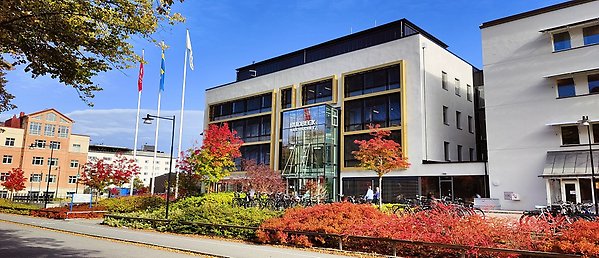The Svedberg seminar series: Ass. Prof. Maria Kasper
November 8 @ 15:15 – 16:30 CET
Karolinska Institutet, Department of Cell and Molecular Biology, Sweden
Maria Kasper is Associate Professor at the Karolinska Institutet in Stockholm, Department of Cell and Molecular Biology. She received her PhD at the University of Salzburg in genetics, with the majors in human genetics and molecular tumor biology. She came to Sweden in 2007, where she spent a fruitful postdoctoral time in Rune Toftgårds lab, and in 2013 she started her own lab focusing on skin, stem cell biology and single-cell RNA sequencing. In 2016, her lab pioneered the use of single-cell transcriptomics in the organ skin and has overall contributed with important work in skin biology and regenerative medicine. Maria has received a number of national recognitions such as the Framtidens Forskningsledare from SSF, Ragnar Söderberg Fellow in Medicine and the CIMED young investigator award, as well as the prestigious international LEO Foundation Gold Award for outstanding skin research. Since 2020, she also coordinates together with Fiona Watt the Human Cell Atlas bionetwork for the organ skin.
Decoding the molecular anatomy of skin
Skin architecture and its function are determined by a rich variety of epithelial, mesenchymal and immune cells that together orchestrate skin homeostasis, including cyclical hair growth and barrier function. Previously, my lab generated a comprehensive molecular and spatial atlas of epithelial and stromal cells during hair growth and rest. These studies revealed underlying molecular programs during progenitor-cell commitment and lineage differentiation, as well as spatiotemporal fibroblast heterogeneity and potential epithelial-stromal interactions. The importance of cell-type specific signaling during homeostasis, and the unrecognized potential of cell-type restricted signaling-changes were exemplified by our recent discovery of how to induce new hair follicles in adult mouse skin by modulating a single signaling pathway. Building on the molecular knowledge and computational skills gained, our ongoing work uncovers new insights in the molecular orchestration of embryonic hair follicle development, as well as the coordination of adult skin stem cell differentiation by tissue resident immune cells.
Host: Gabriella Lindgren, SLU

